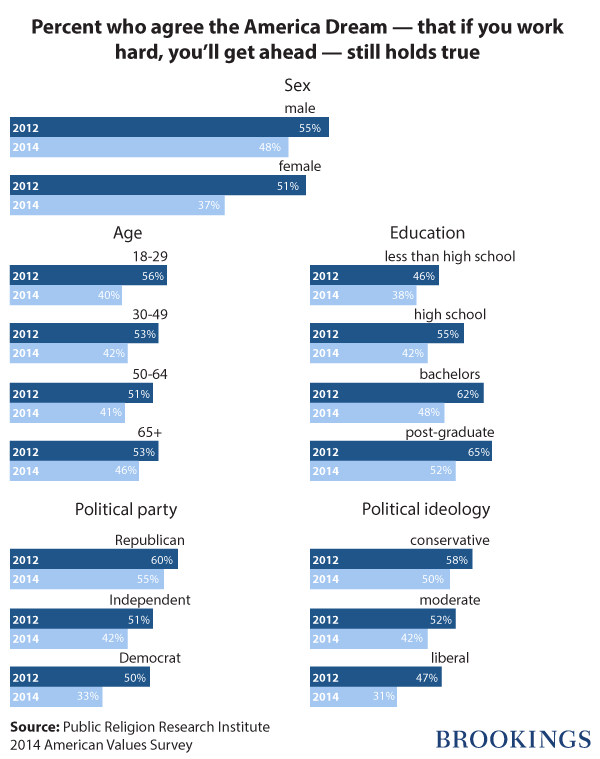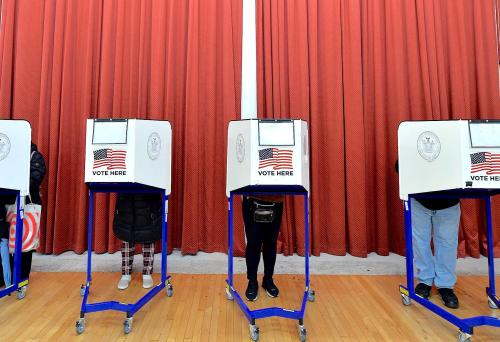Do you think the American Dream—that if you work hard, you’ll get ahead—still holds true?
In the Public Religion Research Institute’s American Values Survey released on September 23, only 42% answered this question in the affirmative, compared to 53% in 2012. Here is how the results broke down:

The decline of belief in the American Dream is concentrated among women (down 14 percentage points since 2012), young adults (down 16 points), Democrats (17 points), and liberals (16 points). This is the heart of the Obama coalition, sometimes dubbed the rising American electorate.
A number of other surveys corroborate the core finding of a dramatic decline in confidence about the future in recent years. For example, when the August 2014 NBC/WSJ poll asked “Do you feel confident or not confident that life for our children’s generation will be better than it has been for us?”, only 21 percent expressed confidence, down from 30% in 2012. During the same month, the CBS poll asked, “Do you think the future of the next generation of your family will be better, worse, or about the same as your life today?”, only 23% responded “better” compared to fully 50% who said “worse.”
In June, CNN/ORC found that only 34% of respondents believed that most children would grow up to be better off than their parents, while 63% expected the children to be worse off. And the Heldrich Center at Rutgers’ Bloustein School found in August that only 16% of Americans expect job, career, and employment opportunities to be better for the next generation than for the current generation, compared with 40% in November of 2009, just months after the official end of the Great Recession. Surveys that have been asking the same or similar questions over an extended period suggest that confidence in the American Dream is at or near the lowest point ever recorded.
Granted, throughout our history confidence in the future has risen and fallen in response to changing circumstances. But while it persists, it retards economic recovery and growth. Families hesitate to spend; businesses are reluctant to invest. And American life loses the energizing narrative that has given us meaning and purpose since the beginning of our national existence.
These findings pose a perplexing challenge for political leaders, including 2016 presidential candidates. On the one hand, pessimists rarely win elections, at least in America. On the other hand, candidates who preach optimism in tough times risk sounding out-of-touch and superficial. The rhetoric of hope that worked so well in 2008 would be ineffective now. In these circumstances, I suspect, citizens will be looking for leaders who offer concrete, credible plans for a better future—and who have what it takes to get the job done.
The Brookings Institution is committed to quality, independence, and impact.
We are supported by a diverse array of funders. In line with our values and policies, each Brookings publication represents the sole views of its author(s).


Commentary
Declining Optimism Among the Obama Coalition
September 23, 2014